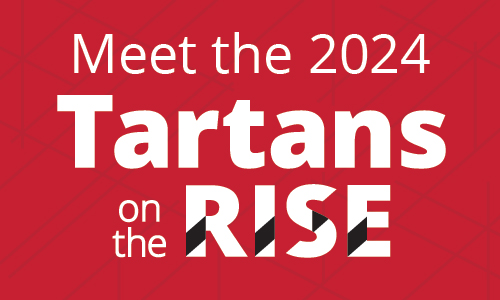Shinjini Kundu, Fellow Physician and Research Scientist, The Johns Hopkins Hospital
Uncovering Brain Disease with AI
“I'm someone who likes to solve important and longstanding problems that haven’t been adequately solved yet,” says Dr. Shinjini Kundu (ENG 2016).
She finds these kinds of challenges in medicine as a neuroradiologist, leaning on doctorate and medical degrees that were completed through the Medical Scientist Training Program from Carnegie Mellon’s Department of Biomedical Engineering in partnership with the University of Pittsburgh School of Medicine.
Her past research focused on developing new AI techniques to understand patterns in medical images to reveal the origin of a disease long before it’s discernible to the human eye. Her breakthrough led to recognition as a Forbes 30 under 30 in Healthcare, a young innovator by MIT Technology Review and a World Economic Forum Young Global Leader, among other awards. She also presented the research as a doctoral candidate in the CMU University Libraries Three-Minute Thesis Competition.
Through her AI analysis of cartilage texture maps, Shinjini predicted markers of osteoarthritis before patients showed symptoms. In her role at Johns Hopkins, she currently focuses on the brain — examining the link between genes, behavior and brain structure in autism and detecting brain bleeds in emergency settings to flag those most at risk. Later this year, she will join the faculty at Washington University in St. Louis as an assistant professor in radiology at Barnes-Jewish Hospital with joint appointments in engineering.
“The fundamental goal is to understand developmental or degenerative diseases for which objective markers for detection are currently lacking,” Shinjini explains. “While there is still much to understand about these diseases, the prospect of making a difference every day to the lives of patients is exciting.”
Story by Elizabeth Speed
